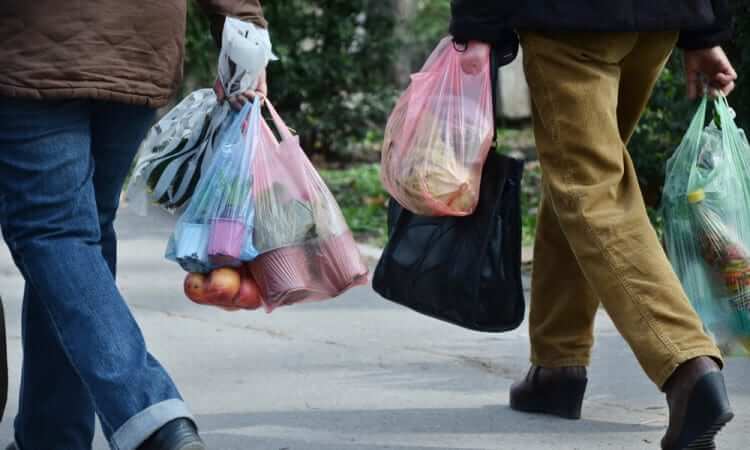1. Plastic Bags
Plastic bags seem like a perfectly natural thing to recycle. Many people will even pack their other recyclables into plastic bags before throwing the whole thing into the bin. But the truth is that these things never end up seeing recycling centers. The problem with them is that these things end up clogging up the machines. A better alternative is to use reusable tote bags or you can google specific locations that do accept plastic bags.
2. Pizza Boxes
Pizza boxes might seem like the perfect thing to recycle, but these and anything else with grease stains on them actually shouldn't be added to the recycling bin. A better solution would be to use them in compost piles. The grease combined with the cardboard is actually perfect for making your compost pile that much more nutrient-rich.
3. Gift Wrap
As much as we love giving each other presents wrapped in bows and shiny paper, these items sadly cannot be recycled. The best thing any of us can do is to actually just stop using them, and instead opt for things like newspaper, paper bags, or butcher paper that all can end up in recycling. Here's a good test: crumple up the paper, if it stays crumpled it can most likely be recycled.
4. Small Pieces Of Metal
Technically, those small bits of aluminum are recyclable, but the problem is that their small size is going to jam up the recycling machinery, so they're often thrown away once they get to the plant. The best solution is to make sure that things like soda tabs are put inside cans or to collect lots of small pieces of aluminum and crumple them into a ball.
5. Recepts
While receipts are made from paper and should technically be recyclable, the truth is that they contain a chemical called Bisphenol A. Also known as BPA, this unfortunate additive is known to contain many cancer-causing chemicals and can actually contaminate other paper products that it's being recycled with. The best thing to do is to not ask for a receipt when you're shopping and if you do get one, to throw it away immediately.
6. Food Residue
This is actually a really important one and one that needs to be taken note of. Food residue is actually so bad for recycling, that even a little bit of food residue can contaminate an entire truckload of recyclables. That's right, that means that a take out container with a few leftovers inside can turn a load of recycling into just another load of trash that needs to be taken to the dump. Make sure instead that you empty and wash out your containers before recycling them.
7. Broken Household Items
People break things all the time and that's okay. What's not okay is taking those broken household items and putting them in the recycling bin. That means things like broken ceramics, porcelain, mirrors, light bulbs, cups, wine glasses, plates, and pyrex all have different melting points from one another. Additionally, their chemical composition can be different from recyclable glass and other recyclables and should thus be put in the trash.
8. Diapers
Doesn't matter if they've been used or not, baby diapers belong in the trash and not the recycling. That being said there are some compostable diapers that you can keep your eyes out for, but most municipalities aren't going to accept them into their compost piles for obvious reasons. A more eco-friendly solution could be to switch to reusable cloth diapers instead of constantly buying and throwing away new ones.
9. Shredded Paper
This one seems surprising, it's paper, right? Why shouldn't we be able to recycle shredded paper like we do whole paper? Much like the other smaller recyclables on this list, shredded paper can also build up and clog machines at the recycling center, making them more of a problem than anything. So what can you do with it? We recommend adding them to the compost pile or staple a bunch of shredded paper shut in a paper bag before putting it in the recycling.
10. Disposable Coffee Cups
Even though these disposable coffee cups seem like they should be recyclable - they're not, unfortunately. The inside of these paper cups is lined with a plastic adhesive that makes them liquid-proof while also making them difficult to recycle. Even the plastic tops of these cups may not always be recyclable, best to check first before adding them to the recycling bin.
11. Paperboard Boxes
Much like with the disposable coffee cups, boxes that are meant to be put in the freezer also have a plastic layer lining the inside and outside of the carton. This is done to prevent freezer burn and while it's useful, it's not great for the environment whatsoever. There are some cities that do still accept them though, but you have to check first before deciding which bin they should be put in.











